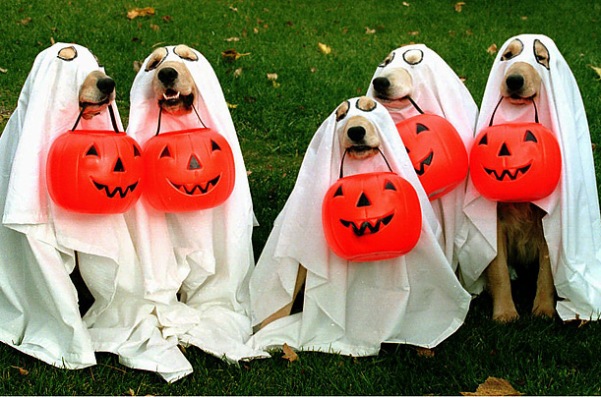Halloween is just around the corner and many children will walk into strange homes, expecting candy. What they should also expect is that many of these homes will contain pets that are not prepared to see people dressed in strange costumes. Halloween is a high risk holiday for dog bites and pet emergencies.
There are several things about Halloween that makes it more pet-unfriendly than other holidays. For one thing, most neighborhood homes will see plenty of little visitors out trick-or-treating on Halloween evening. They will be dressed in costumes that may seem strange to pets. Any dog that’s scared, stressed or anxious is at a high risk of biting or escaping through an open door. Even if your pet is usually very social and enjoys visitors, the non-stop doorbell ringing and opening of the door may be too much, even for the most social of pets!
Keep your kids safe:
Children who are out trick-or-treating must be taught to avoid unnecessary contact with dogs. Avoid eye contact with any dog. In fact, it’s best not to have much contact even with your own pet dog while in costume. According PawNation.com, dogs recognize both sight and smell, and may be confused by the familiar smell of an owner in a strange costume.
Teach your child not to try to pet strange dogs.
If your children are planning to visit homes of people you know, call them and inform them beforehand so they can arrange to have their pets confined safely.
Keep your pets safe:
People who have pets will want to take special precautions for Halloween. It’s best to confine your pet in a room during the evening. Dogs can get excited when they are near doors and gates. Open doors also provide a quick escape route for a scared cat.
Do not allow trick or treaters to feed your pets any kind of treat. Halloween can be a dangerous time for pets to be ingesting items that can make them ill.
Be sure your pets are wearing a collar and ID tags so they can be returned home safely in the event they do manage to escape during the night’s festivities.
Keep your kids and furr-kids safe this Halloween!


